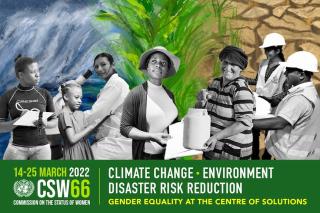2022 Commission On Status Of Women
By Bruce Knotts
This post was originally sent out on March 25 via a monthly email message from Director Bruce Knotts of the Unitarian Universalist Association Office at the United Nations. Subscribe to the UU@UN email list.
Each year at the United Nations, we follow a pattern of important events based on regular international holidays, summits, and convenings.
In September, heads of state converge at UN Headquarters from around the world for UN General Assembly.
In December, programs focus on human rights around the anniversary of the Universal Declaration of Human Rights.
For some, March is the most exciting month, with its Commission on the Status of Women (CSW) summit, where thousands of women from all over the world come to the UN to discuss the progress (or lack thereof) in meeting the goals of the UN Convention on the Elimination of All Forms of Discrimination Against Women (CEDAW).
187 of the 193 UN member states have ratified this convention; the United States has not. Many have opined that ratification of CEDAW would grant American women most if not all the rights enumerated in the Equal Rights Amendment (ERA). It is shameful that the U.S. has yet to finalize its commitment to both the UN CEDAW and the ERA.
While women have made extraordinary strides in the fight for equality over the last century, it’s clear that huge inequality remains, as pointed out by Secretary-General António Guterres in a statement during the Commission on the Status of Women.
“The challenges we face today—the COVID-19 pandemic, the climate crisis, the growth and spread of conflicts—are largely the result of our male-dominated world and male-dominated culture,” he stated, adding that gender equality and parity are “fundamental prerequisites for a safer, more peaceful, more sustainable world for all.”
Guterres has commissioned an independent review of what UN News calls the “gender architecture of the entire UN family”—recognizing that the UN itself must practice what it preaches.
The UU@UN has a long tradition of active participation in the annual CSW. We are known for programs that focus on lesbian, bisexual, and trans women—reminding CSW that the goals of CEDAW must include ending all gender-based discrimination and must involve people of all genders.
This year one of our events centered the struggles that LGBTQI+ people encounter in the workplace. LGBTQI+ women and non-binary people continue to suffer discrimination in the workplace and oppression in society. In this webinar, guest panelists shared their expertise about what this experience looks like across the globe. We explored the progress that has been made, as well as the struggles that persist in the workplace.
Our second event was about the impact of climate change on women and girls. The climate crisis is having profound effects on the lives of people everywhere; but when it comes to the lives of girls and women, the crisis’s effects are disproportionate. Research shows a rise in gender-based violence following catastrophic climate-related events, as well as increases in sex trafficking and child marriages. In this event, guest experts shared solutions to these dire problems.
We invite you to view and share the recordings of our CSW events and to support the UU@UN as we work to ensure equal rights for people of all genders everywhere.
The UUA Office at the United Nations is supported by the generosity of individuals like you. Donate now.
Here you can find event recordings and details about our two CSW parallel events:
